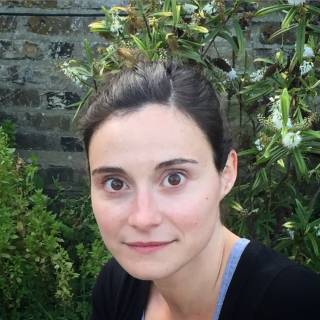Roser completed her PhD with Prof. Giorgio Savini in 2014. Roser was the recipient of the Darius prize.

When I moved to London in 2010 to start my PhD at UCL, it was my first time in an English-speaking country. It was daunting to say the least, but soon enough, the experience became thrilling and exciting. Although doing a PhD is never easy, I can say I had an incredible time. This is thanks in large part to my fellow PhD students, an extremely talented group of people from all over Europe from whom I learned on a professional and personal level. To this day, some of them are my closest friends.
My PhD research was in space-based far-infrared interferometry. My supervisor, Prof. Giorgio Savini, was an incredible mentor who gave me the tools and opportunities to participate in cutting-edge projects and collaborations both in Europe and around the world. Thanks to his mentorship, when I finished my PhD, I was asked to apply for and ultimately received a fellowship at NASA Goddard Space Flight Center outside Washington, DC.
During the first two years at NASA, I was involved in far-infrared interferometry projects, including the BETTII balloon, which brought me to remote balloon campaign locations across the United States for weeks at a time. When that project finished, I decided to shift my research towards exoplanets and coronagraphy. It wasn’t easy in the beginning, but the tools that I had acquired at UCL prepared me for this change in my career. I am now the Goddard lead for the Segmented Coronagraph Design and Analysis study (funded by the NASA Exoplanet Exploration Program), and I work in technology development for the next generation of coronagraph instruments.
One of the most important things I learned from my time at UCL and in the subsequent years is that all career paths are different - no single path is better or worse than any another. I did a PhD in astrophysics, but my background was in Electrical Engineering and Computer Science, with a Masters in Photonics, and at NASA, I work with astrobiologists and mechanical engineers. I worked for two years before starting my PhD, whereas some people started right after completing their undergraduate degrees and others began in their mid-thirties. Everyone’s journey is unique, and what’s important is what each person makes of it.
 Close
Close

